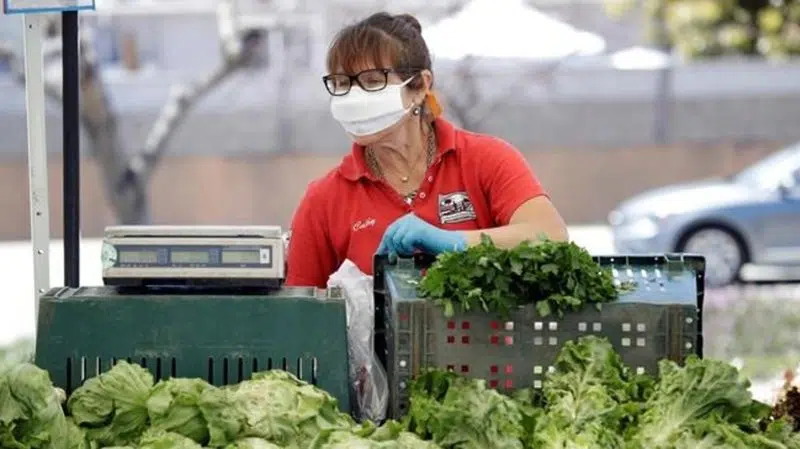
Farmers markets looking for ways to stay afloat during the pandemic
Canada’s farmers markets, traditionally reliant on bustling crowds paying cash for locally produced food, seem particularly ill-suited to the age of physical distancing.
But those in the industry say business is surprisingly robust as they find ways to stay afloat in the present while hopefully modernizing the field for the future.
Farmer Dave Kranenburg said he’s never been busier despite not setting foot at a traditional market for weeks.
When faced with the prospect of losing 95 per cent of his annual revenue due to pandemic-related shutdowns, the co-owner of Kendal Hills Farm near Orono, Ont., set about creating an online alternative to the sorts of spaces that allowed him to make a living prior to the outbreak.


